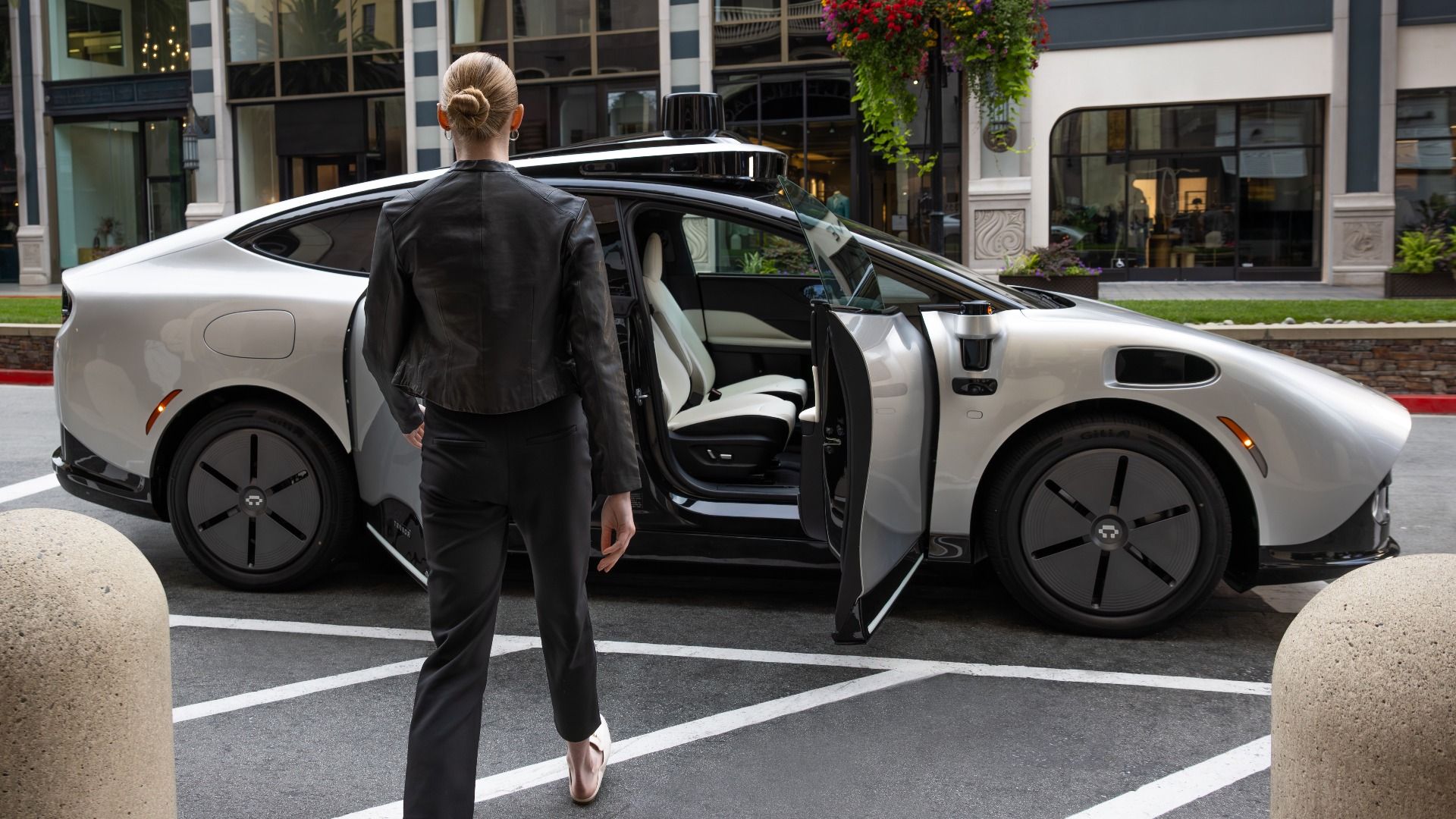A new challenger to Tesla and Waymo’s self-driving vehicle efforts was announced today. Tensor, an upstart from San Jose, California, claims to have a new vehicle capable of advanced Level 4 autonomous driving that it hopes to start selling in the Middle East, Europe, and the US by the end of next year.
Though technically an upstart, Tensor actually launched in 2016 and spent several years in China, known back then as AutoX. A company spokesperson explained to CarBuzz that its core operations have always been in California, and that “all AutoX operations in China have since been divested, with all offices closed and the brand’s China operations fully discontinued. Tensor is now solely an American company with no active presence or operations in China.”
It’s unclear how much research and development in the new car, known simply as the Tensor Robocar, is drawn from AutoX’s former China operations. Previous reports confirm AutoX conducted extensive driverless vehicle testing in China.
Tensor’s new vehicle is creatively dubbed the “Robocar,” equipped with over 100 sensors to allegedly be capable of Level 4 autonomy. The National Highway Traffic Safety Administration (NHTSA) defines Level 4 autonomous capability as: “when engaged, the system is fully responsible for driving tasks within limited service areas,” and that: “a human driver is not needed to operate the vehicle.” The company mentions it can be calibrated to other levels of autonomy, and it also comes equipped with a foldable steering wheel and display for scenarios where a driver may want or need to take control.
At this stage, the vehicle is intended for personal and private ownership, according to the company’s positioning. The website mentions self-driving operation in “zones,” but admits that outside of these designated zones, the driver will “just take the wheel or switch to assisted driving for a smooth handoff between autonomy and control.” All the vehicle systems are controlled by a central AI computer with components from Nvidia.
The website lists a veritable warehouse of technical components used by the car, including: “37 cameras, 5 LiDARs, 11 radars, 22 microphones, 10 ultrasonic sensors, 3 IMUs, GNSS, 16 collision detectors, 8 water-level detectors, 4 tire-pressure sensors, 1 smoke detector, and triple-channel 5G.” It also mentions dedicated sensor cleaning technology, and a double-thinking AI logic setup with the first operation imitating learned driving behavior, with a second operation focused on decision-making and rarer edge cases.
The car itself is fully electric on an 845V high-voltage platform, with a ZF-developed four-wheel steering setup and air suspension. There’s also a dimmable sunroof and double-laminated glass for a quieter cabin. The seats offer heating, cooling, and massaging, and in self-driving mode, there are two large screens on the dashboard, one for each front seating position. The Robocar has seating for five passengers.
If something does go wrong, the car is said to be engineered to the strictest global standards, including “FMVSS, IIHS Top Safety Pick+, and US N-cap 5-Star ratings, along with rigorous European and GCC standards.” It’s worth noting that, as far as we can tell, the car hasn’t actually received any certifications for these standards at this time. Tensor also says that, because of the AI model, all data is stored locally on the vehicle, and doesn’t require a cloud connection, which enhances data security.
Tensor states it has set up a relationship with Marsh for the world’s first “robocar” insurance policies. There’s an exterior palm reader for access without a key, and interior facial sensors to unlock certain screens or functions. There are also external screens that display “Carmoji” graphics that try to communicate what the vehicle system is doing.
To Tensor’s credit, there is at least one full-scale car in existence – something we don’t always see with startups. The company says the first production models will be built by VinFast in Vietnam, which is an interesting choice considering that VinFast is supposed to be building a new factory in North Carolina. That would help Tensor avoid some of the new US tariffs on imported vehicles and components.
As The Verge points out, Tensor has a history in China. It seems possible they face some unique hurdles in getting to market in the near future. Images also show cameras and interior screens in place of traditional side mirrors, which have not yet been approved for US vehicles. AutoX, before its rebranding to Tensor, was established and testing vehicles in the US since 2016, though it’s unclear how much testing this exact model has gone through so far.
Tensor says it will sell the Robocar in the US, Europe, and the UAE starting in the second half of 2026. However, it’s not clear if any of these markets’ governance will establish new rules regarding self-driving vehicles and their operation and ownership by that date.
As it stands right now, there are very few places in the world where even Level 3 automation is allowed. That system accommodates hands-off and eyes-off driving on limited roads at certain speeds, though a driver must be ready to assume control at any time. Hands-free systems like Ford BlueCruise and Tesla Autopilot with FSD are considered Level 2+.
So while Tensor might have a technology-packed vehicle, current laws and vehicle infrastructure pretty much rule out any Level 4 operation for the foreseeable future. Pricing is also unknown, but as with just about every automotive startup announcing a new product, you can get on a waiting list to buy one.
Source: Tensor/AutoX; The Verge
We want to hear from you! Share your opinions in the thread below and remember to keep it respectful.
Your comment has not been saved
This thread is open for discussion.
Be the first to post your thoughts.
There’s a new V12 hypercar to get excited about, and it was penned by a former Bugatti designer.
A dozen states that allow alternative fuel vehicles in the carpool lane with a special sticker will have to stop the practice by the end of September.
The Japanese marque knows that EVs aren’t the endgame, and it has the perfect plan for that.
Toyota is planning a new factory that could revolutionize its manufacturing.
Regulatory filings have revealed an updated Yangwang U9 that’s aiming for a new Nürburgring lap record.
Ford’s new truck will be part of the company’s new manufacturing plan for electric vehicles.












